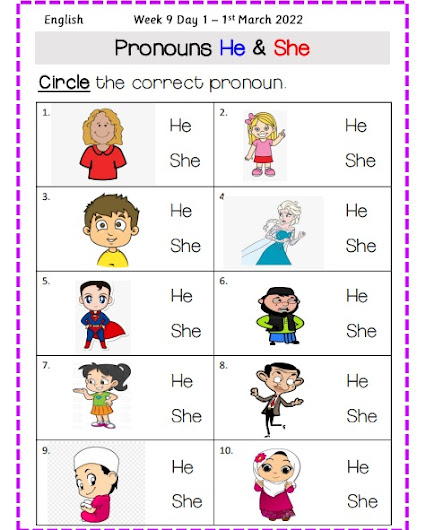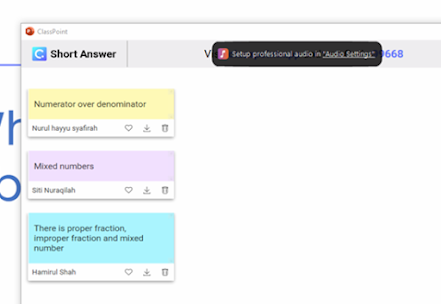As a
Mathematics and English teacher, I wish to help my students to be independent learners, responsible
for their own learning. Apart from that, my aim is to help them develop their
21st century skills, especially the 4Cs: communication, creativity,
collaboration and critical thinking. As a teacher, I believe that students will
need to have such skills in order for them to be successful in the future. I
like to have a student-centered, fully-engaging class where all students are
not reluctant or shy to share their own ideas and opinions. I like to ensure
that the students’ participation is at its maximum, in addition to them having
the opportunity to take part in hands-on activities which enhance their
learning. I also believe in the benefits of differentiated learning, where no
students are to be left behind. My teaching philosophy is influenced by Abraham
Maslow’s humanist approach, where I aim to have a group of students who feel
safe, welcomed and comfortable during the learning process.
Students
learn best when they are actively engaged in the learning process. To achieve
this, I often start my class by asking their prior knowledge on the topic to
know where they are at on their learning. I also encourage them to think,
discuss and share their ideas with their pairs or within their groups. This
practice helps create a safe learning environment for them so they become more
confident to ask questions whenever they are in doubts, or to share their
opinions when necessary. I like the practice of peer feedback and peer
correction in my class, because I believe sometimes students also learn better
from each other instead of from their teacher. I often give my students the
opportunity to present their work whether individually, in pairs or in groups.
It is through group activities that the students can enhance their
communication and social skills, in addition to developing their teamwork and
leadership skills. I like the use of game-based learning in my class, where
students can have fun while learning at the same time. There are a number of
games and activities that can be used in class, for examples, BINGO,
tic-tac-toe, multiplication dice and the list goes on. Whenever possible, I
always create activities which can relate my teaching to the real-life
examples. For instance, when teaching shapes, I would ask my students to hunt
for the shapes they learn in the classroom.
I believe
in formative and summative assessment. Therefore, I encourage pair work and
group work throughout my lesson where students are given the opportunity to
reteach and reexplain the concept to each other. Students are also prompted to
explain how they get their answer to their questions. It is also through
presentation that students can argue and discuss different opinions and
contradicting answers. This type of constructive feedback among each other
helps the students learn better. I always challenge my students to create their
own questions during class activity to assess their understanding on the topic.
I also use the “I do, We do & You do” strategy in class to ensure that
students are able to do their tasks on their own. I often create differentiated
tasks and worksheets to make sure that every student is learning at their own
pace without having to feel like they are left behind. I also give frequent
topical tests to students to assess their knowledge, and to help them be
prepared for their examinations. Apart from that, I also implement short
quizzes and online interactive games to assess whether the students have
achieved the targeted learning outcomes.
It is every
teacher’s wish to see their students being successful in the future. My
definition of ‘successful’ is for the students to be able to enhance their
critical thinking skills and improve their mathematical skills in general so
they could apply the knowledge they have gained into the real world. I expect
my students to build up their confidence and self-esteem and be more
independent with their own learning. I also hope to produce students who are
used to problem-solving skills as it is essential in our everyday life.
Challenges
are inevitable when it comes to teaching and learning. One major problem I
often face is language barrier. Although the medium language used is English,
quite a few students still struggle to communicate in English with the teacher,
or with each other. This makes it difficult to have a smooth lesson because
language translation often occurs in between. Another main issue is the
practice of peer feedback or peer correction. Some students find the practice humiliating
and they lose face particularly when they make mistakes during the learning. A
few of them even feel like their friends do not have the authority of
correcting their mistakes. In this recent time where learning takes place
online, it is difficult to implement the practice I usually use in physical
class into the online class. The lack of students’ online participation makes
it hard to conduct a fully engaging class the way I used to.
To overcome
these obstacles, I usually allow the use of bilingual education in my classroom
at its necessary level. Students are allowed to explain what they know in Malay
language. However, it has to be followed with immediate translation or
rephrasing to English language either by myself or by their peers. I would have
self-evaluation after every class conducted to reflect back on my teaching and
access the things that go well and the things that I should improve. I also
introduce a number of ground rules for the students to follow when giving peer
feedback. To have a better students’ response during online class, I have to
ensure that I use minimal and yet effective online learning strategy so that
all students can participate. I often prepare a short lesson video for the
students to refer to in case they could not make the live online lesson.
I like the
idea of peer evaluation in improving my teaching skills. I am open to any
constructive feedback, advices and opinions given by my colleagues or someone
with high authority. I would also participate in professional development
sessions conducted within the school or within the ministry so I could learn
more on how to become a good 21st century teacher.














